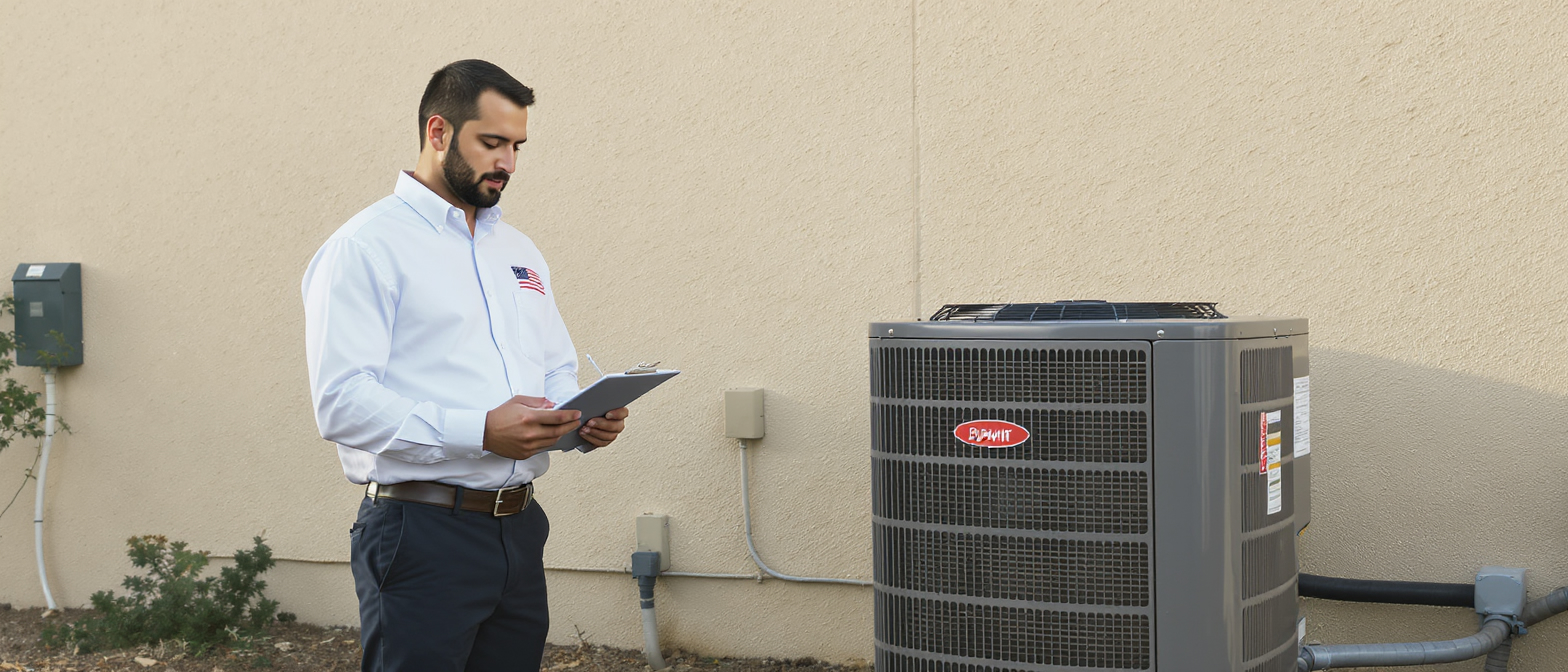How to choose a reliable HVAC contractor

Why choosing a reliable HVAC contractor matters
Heating and cooling equipment touches electrical, gas, refrigerant, and building envelope systems. A reliable HVAC contractor protects your home, business, and warranty by following codes, pulling permits, documenting load calculations, and commissioning the equipment correctly. Attempting DIY fixes or hiring an unqualified installer can create safety hazards, void warranties, and, in many cases, complicate insurance claims because insurers often require work by a licensed, insured professional.
Core qualities of a reliable HVAC contractor
Licensing, insurance, and permits
- Licensed and insured: Ask for a current license number and a certificate of insurance (general liability and workers’ compensation). This is essential for homeowners and property managers.
- Permits and inspections: A reliable HVAC contractor pulls required permits and welcomes inspections. Avoid any provider who suggests skipping permits to “save time.”
Proven training and experience
Experience should match the complexity of your project—residential or commercial, retrofit or new construction, simple replacements or multi-zone systems. Reliable teams maintain ongoing training and demonstrate factory-trained knowledge. For example, the engineers at #1 AC Guys have trained at the factory with Fujitsu (Japan), Mitsubishi Elektrik (Thailand), Midea (China), Gree (China), and Hier (China). Our 4th generation family of engineers brings 80+ years of engineering experience to complex design and commissioning, with a focus on large and challenging commercial and residential HVAC projects.
Transparent proposals and documentation
- Load calculations: Look for Manual J (load), Manual S (equipment selection), and Manual D (duct design) where applicable. Without this, you risk oversizing or undersizing.
- Scope clarity: The proposal should define equipment model numbers, efficiency ratings, ductwork changes, electrical upgrades, controls, and warranty terms.
- Commissioning plan: Good contractors outline startup checks, refrigerant charge verification, airflow balancing, and controls calibration.
Reputation and references
- Reviews and case studies: Read detailed reviews that mention communication, cleanliness, and follow-through, not just star ratings.
- Like-for-like references: Ask for references from projects similar to yours—historic homes, multi-tenant buildings, restaurants, or data rooms.
Technical signals you’re in good hands
Whole-building thinking
Reliable contractors consider the envelope, ventilation, and indoor air quality—not just the box outside. They discuss filtration (MERV ratings), ventilation strategies, humidity control, and smart zoning. At #1 AC Guys, our mission is healthy air at home for a healthy life, so we prioritize balanced airflow, clean duct design, and right-sized filtration and ventilation.
Code and safety literacy
Expect conversations about gas venting, refrigerant line sizing, electrical load capacity, condensate management, and combustion safety. A trustworthy team explains why each step matters to performance, safety, and warranty compliance.
Red flags to avoid
- No license or insurance, or hesitation to share documentation.
- Quotes given without a site visit or measurements.
- Only one equipment option and no discussion of trade-offs.
- Refusal to pull permits, or pressure to pay cash off the books.
- No commissioning plan, no maintenance guidance, or vague warranties.
DIY vs. professional work
From refrigerant handling to electrical connections and combustion venting, many HVAC tasks require certification and test instruments. Improper work can cause carbon monoxide risks, electrical faults, water damage, or refrigerant leaks. Insurers and manufacturers often require installation and service by a qualified, licensed contractor—otherwise coverage and warranties may be denied. When in doubt, bring in a professional to assess the system before you act.
How to compare bids the smart way
- Verify license, insurance, and permits are included.
- Confirm Manual J/S/D or appropriate engineering calculations.
- Compare apples-to-apples model numbers and efficiency ratings.
- Ask for a commissioning checklist and post-install reports.
- Review labor and parts warranty terms in writing.
- Evaluate communication quality, cleanliness standards, and timelines.
Service area and project types
In Southern California, climate, codes, and building types vary widely. Reliable providers should be comfortable across Los Angeles County and nearby areas including Orange County, Ventura County, and Western Riverside County. Typical cities include Los Angeles, Long Beach, Pasadena, Santa Monica, Glendale, Burbank, Anaheim, Irvine, Huntington Beach, Costa Mesa, Fullerton, Ventura, Oxnard, Thousand Oaks, Riverside, and Corona. Look for a team versed in both residential and commercial HVAC, from heat pumps and multi-zone ductless to packaged rooftop units and advanced controls.
What to ask before you sign
- What is the design basis? Do you provide Manual J/S/D or stamped engineering where required?
- How will you verify airflow, refrigerant charge, and controls performance?
- What filtration level and ventilation strategy do you recommend for indoor air quality?
- How do you handle change orders and unforeseen conditions?
- Who will be onsite leading the job, and how do you protect my home or business during work?
About #1 AC Guys
#1 AC Guys is a family-run HVAC company in Southern California, serving Los Angeles County and nearby areas including Orange County, Ventura County, and Western Riverside County. We are a 4th generation family of engineers with 80+ years of engineering experience. Our engineers have trained at the factory with Fujitsu (Japan), Mitsubishi Elektrik (Thailand), Midea (China), Gree (China), and Hier (China). We specialize in commercial and residential HVAC, especially large and complex projects, and we center every design on indoor air quality because healthy air at home is essential to healthy living.
Yasmine is currently an Associate Professor of Psychology at Mount Saint Mary College where she teaches a wide array of courses in the Psychology department. She is a Fulbright Scholar spent a year working at the Medical Decision Making Center at Ono Academic College in Israel.
Yet, as many higher education professionals can surely attest to, I have also witnessed the other challenge in group decision making. In academia, engaging in critical dissent is encouraged (reviewed by Jetten & Hornsey, 2014), and while this is a fine attribute, practically,
